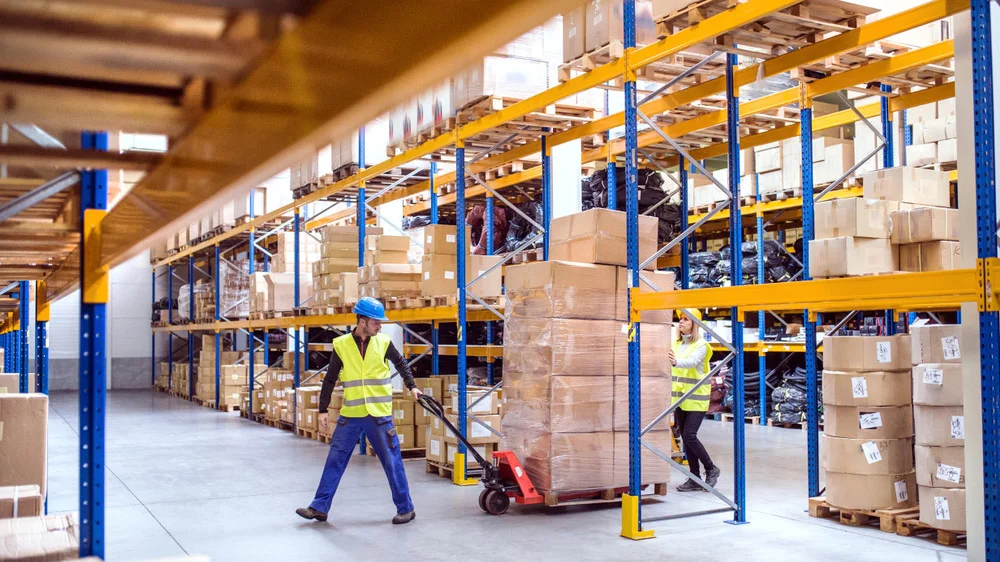Poland is full of opportunities if you know how to approach them. Stay with me on “Finding Factory and Warehouse Jobs in Poland Without Knowing the Language.”
A Practical Guide for Foreigners Working in Poland
Let’s be honest—arriving in a new country without knowing the local language can feel like standing in a crowded room where you understand nothing. If you’ve been thinking about working in Poland, especially in factories or warehouses, but worry about not speaking Polish, you’re not alone.
The reality is thousands of foreign workers are already in Poland, many with little or no knowledge of the language. Yet they’re earning steady incomes, signing legal contracts, and building better lives.
I’ve met people from Ghana, Nepal, India, Ukraine, Uzbekistan, and the Philippines, each with their own journey. If they can do it, so can you.
Click here to apply for jobs in Poland
Finding Factory and Warehouse Jobs in Poland Without Knowing the Language
There’s no magic shortcut. It takes effort, but it’s entirely possible. Here’s how you can find factory or warehouse work in Poland even if you don’t speak Polish.
Why Poland Needs Foreign Workers
Poland has become one of Europe’s manufacturing and logistics hubs. Industries such as automotive, food processing, clothing, and electronics constantly need reliable workers.
Because many young Polish workers move abroad for higher wages, there’s a labor shortage at home. To fill the gap, companies actively hire foreigners. The truth is you don’t need to speak Polish to pack goods, sort items, or handle machinery under supervision—you just need to be dependable and punctual.
Cities with the Best Opportunities
Not every city has equal opportunities. Your chances are higher in regions with strong industrial and logistics growth:
- Wrocław – electronics, e-commerce, logistics (Amazon, DHL)
- Poznań – automotive, food processing, furniture
- Łódź – textile and garment industries
- Warsaw outskirts (Pruszków, Piaseczno, Błonie) – major warehouses
- Katowice / Silesia region – heavy industry and manufacturing
Focus on these hubs to maximize your chances.
Use Job Platforms That Cater to Foreigners
Most Polish job boards are in Polish, but don’t let that stop you. Some platforms list positions specifically for foreigners and even have English options:
- EWL.com, Pracuj.pl – broad listings (use Google Translate if needed)
- Worksol.pl – jobs targeting Asian and Eastern European workers
- Jobs.pl – some English-friendly listings
- Europa.jobs – multi-language site with options for non-Polish speakers
Keywords to search for include:
- praca bez języka – work without language
- praca dla obcokrajowców – jobs for foreigners
- magazynier – warehouse worker
- produkcja – factory production
- pracownik fizyczny – manual labor
(Pro tip: Use Chrome’s auto-translate if the site is only in Polish.)
Work with Agencies That Recruit Foreigners
Recruitment agencies are one of the most effective ways to find work. Many specialize in placing foreigners and provide help with documents, contracts, and sometimes housing.
They often group workers by language and assign coordinators who speak English or Russian, so Polish isn’t always necessary.
Tips for safety:
- Look for licensed agencies (agencja pracy dla obcokrajowców).
- Always sign a legal contract (umowa o pracę or umowa zlecenie).
- Avoid “cash-only” jobs.
Join Social Media and Community Groups
Telegram and Facebook groups are buzzing with daily job postings. Examples include:
- “Work in Poland Without Polish”
- “Warehouse Jobs in Poland”
- “Indians, Nepalis, Bangladeshis in Poland”
- “Ukrainians Working in Poland”
Engage with members, ask questions, and check comments about specific recruiters or employers. Peer feedback can save you from scams.
Have Your Documents Ready
Most employers will require:
- A valid passport
- Work visa or residence permit (e.g., type D visa, temporary permit)
- Work permit (zezwolenie na pracę)—usually arranged by the employer
- PESEL (Polish ID number, optional but helpful)
- A bank account for salary payments
- Health insurance (often included in the contract)
If you’re applying from outside Poland, a job offer is often needed before securing a visa.
Learn Basic Polish Phrases
While fluency isn’t required, knowing a few basic words can make the job easier:
- tak (yes), nie (no)
- dobrze (good)
- szybko (fast), powoli (slow)
- zacznij (start), koniec (end)
- ostrożnie (careful)
Even a little effort shows willingness and helps you integrate faster.
Be Ready for the Work
Factory and warehouse jobs aren’t glamorous—they involve long hours, repetitive tasks, and sometimes tough conditions. But they’re honest jobs that give you a stable income and a stepping stone toward residency or future opportunities.
You’ll also meet other international workers, build connections, and gain valuable experience.
Final Thoughts
Working in Poland without Polish is possible—and thousands are already doing it. By targeting the right cities, using trusted agencies, and staying flexible, you can secure a legal job that pays the bills and supports your new life.
These jobs may not be flashy, but they provide stability, community, and a first step toward something greater. Don’t let the language barrier hold you back.
Start applying now. Even if cześć (“hello”) is the only Polish word you know, it could be the beginning of your new journey.










